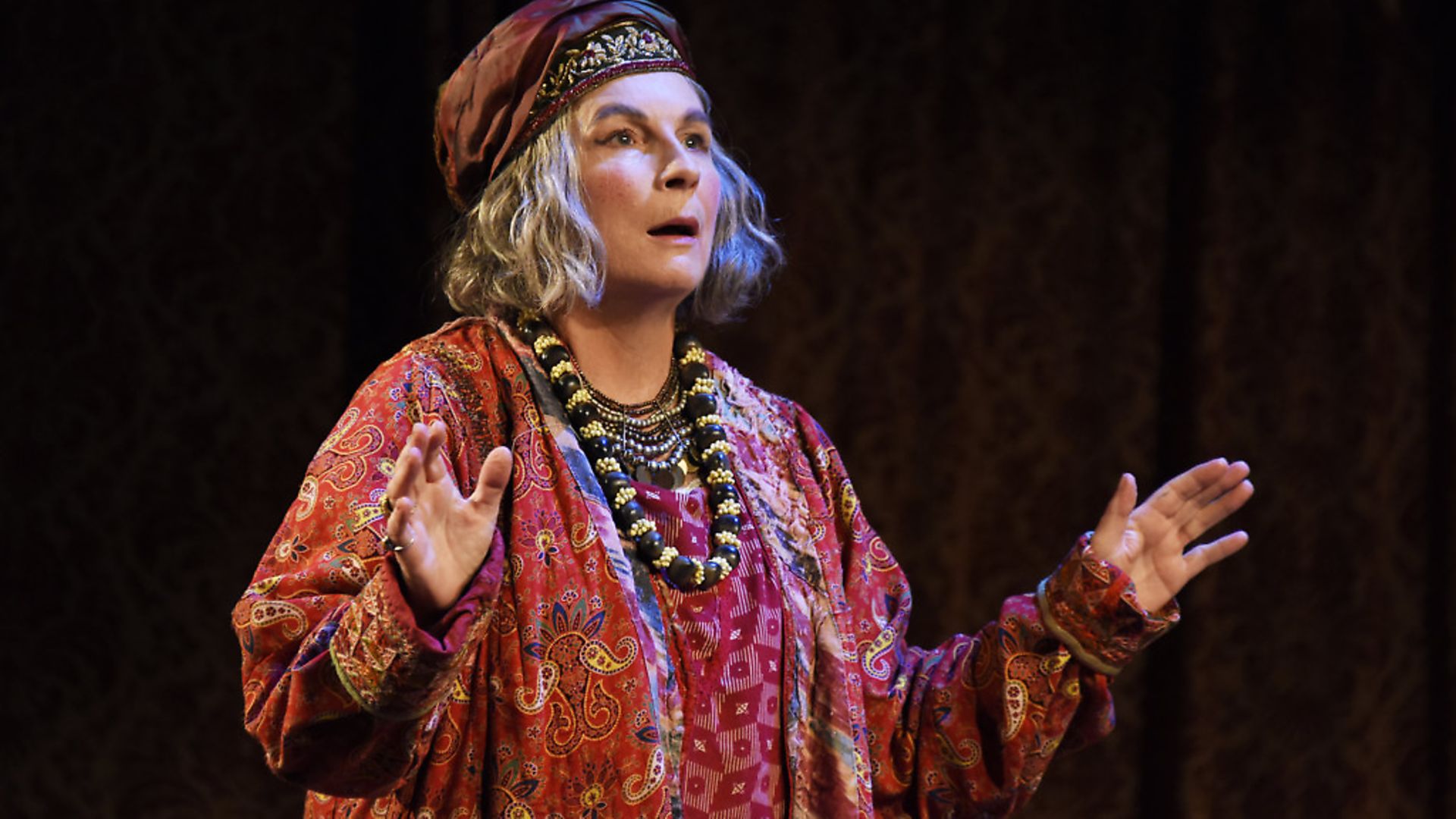
TIM WALKER reviews Blithe Spirit at Duke of York’s in London – now closed due to coronavirus.
So many people these days seem to want so many other people ‘to go back to where they came from’ that the phrase is becoming wearying, but poor old Charles Condomine has more legitimate reason to use it than most. The woman he’d like to repatriate is his first wife Elvira, who, when all’s said and done, is supposed to be dead.
Sir Richard Eyre’s revival of Noël Coward’s Blithe Spirit resonates with our times in more ways than one. In an auditorium where every unguarded cough was making the punters fret, what better entertainment could there possibly be than a play about the thin dividing line between life and death?
As Madame Arcati, the medium that Charles unwisely asks to put on a seance, Jennifer Saunders is a lot of fun. There are few great roles in the theatre for women, fewer still where they can ham it up outrageously, so no wonder the part has proved irresistible to her and so many grand dame actresses over the years (Margaret Rutherford, Beryl Reid, Penelope Keith etc).
Saunders is a relatively youthful Arcati by recent standards – at 61, more than 30 years the junior of Dame Angela Lansbury who last essayed the role in the West End a few years ago – but she makes it her own nonetheless. Even her heavy eyebrows had me tittering: they make her look like a cross between Joan Crawford and Laurence Olivier, playing Rudolf Hess in Wild Geese II.
I’m not sure about her flatulence – at most implied in the original, here spelt out somewhat crudely – but the actress understands how to portray eccentricity without going overboard and she ensures the essential good manners and old world values of the piece are somehow more or less preserved.
There is more than a touch of Henry Higgins in Geoffrey Streatfeild’s Charles, who spends a lot of his time retrieving volumes from his library, which accommodates no fewer than 26 rows of books and stretches up high into the rafters of the theatre.
His scenes with Elvira (Emma Naomi) are daringly played: his initial shock at seeing her back from the dead soon gives way to lust, and, for the first time seeing this play, I was aware of undertones of necrophilia.
Streatfeild has a splendidly plummy voice of which Coward would no doubt approve, but I do wonder about his green jacket and brown trousers, which make him look a lot more like an old-fashioned railway ticket collector, rather than the country squire he’s supposed to be.
Lisa Dillon is, meanwhile, suitably exasperated as Charles’s extant wife Ruth and Rose Wardlaw gets a lot of laughs as the all-too-often overlooked housemaid Edith.
Eyre’s direction is crisp but reverential, Anthony Ward’s set breathtaking, and top marks to the lighting designer Howard Harrison, who assigns the players spotlights that accord with the dimensions they are supposed to inhabit. The casting director Ginny Schiller did very well, too, just to conjure up the idea of Saunders as Arcati.
Warning: Illegal string offset 'link_id' in /mnt/storage/stage/www/wp-includes/bookmark.php on line 357
Notice: Trying to get property 'link_id' of non-object in /mnt/storage/stage/www/wp-includes/bookmark.php on line 37







